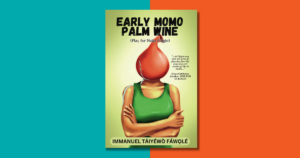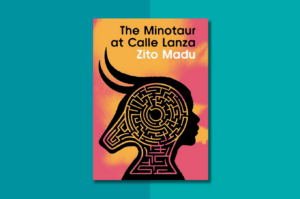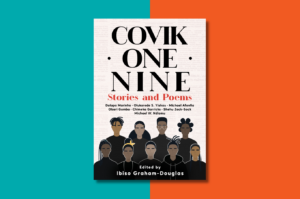
4
Black African Culture and Assimilation
The natural calling of an intellectual is to interpret the funda- mental issues of his time that will determine the public’s future. The events of our century are so fast-paced and exhilarating that, from one day to the next, every intellectual’s conscience impels him to take a stand. These are events taking place in the personal, social, and political domains – that is, three aspects of culture. They inspire a sense of responsibility in every one of us who wields a pen.
The temptation to ignore this responsibility is alien to a particular category of men, the colonized. Why? Because the situation of the colonized (the native, evoluído, evoluinte, assim- ilado, and on and on), whatever the label they want to put on us, entails a permanent attack on our personhood.
Frobenius’s idea that the Black barbarian incapable of creating forms of civilization is a European invention bears repeating again and again. But the current debate about Black African culture (or about Black cultures, integrated into a Black African civilization which includes Africa and part of the Americas) goes beyond the pure and simple affirmation of Black values, or the recognition of civilizations that flourished on the African continent, or even the
recognition of how these values contributed to the enrichment of other, so-called superior, cultures. Black intellectuals understand the problem differently and according to another perspective: a) they examine the relationship between power and culture – that is, the political conditions of Black culture; and b) they posit the possibility of a renaissance of Black cultures and their integration into universal patrimony.
Without going into the details of European nations’ methods of colonization, or exploring the attitudes of the various colonizers in relation to Black African culture, the historical evidence leads us to believe that the oppression of “native” Black African cultures resulted from the relationship between Europe and Africa – in short, from the colonial conflict. Africans were regularly deprived of social and political structures, of the natural conditions in which their cultures would normally have evolved. Their languages were relegated to the secondary position of go-between dialects, and speakers of those languages essentially lost their standing as experts on the societies that were, after all, their own original creations. In short, Black cultures, as a result of the reality of colonization, sought refuge in a kind of tribal secrecy; meanwhile, all around them these societies were beset by a program of human devastation, the loss of tribal identities, white presence, military conquest, political power.
Thus, the possibilities of a Black African renaissance can only be considered in a political context of national independence. Every example of cultural renewal throughout history has come to be more or less over the long term, through emancipation brought about by the stakeholders.
***
But it’s as if the totality of this problem, which is now a worldwide one, loses its significance in the face of the “world that the Portuguese created.”1 Perhaps the Portuguese had a natural advantage? Maybe it was their historical destiny or divine blessing? The “literature” dedicated to the problems that arise when new peoples enter onto the great stage of history seems to us so shoddy, as Césaire says, that an outside observer might legitimately question whether conflicts caused by the “Portuguese presence” in Africa exist at all.
Portuguese expansion, guided throughout its historical devel- opment not by moral or religious concerns but, rather, by socio-economic ones, certainly forged its own path. Some histo- rians linked the moral or religious concerns to the so-called crusading spirit that António Sérgio handily refuted, with the characteristic astuteness of his essays, in a recent text about the Tragic History of the Sea. Indeed, incompatible with Christianity. So how can we understand the famous quest for “Christians and spices” differently?
The historical fact that Portuguese expansion permitted the West and the world to widen their horizons, that it constituted one of the sources of modern capitalism, is nonetheless one that we must not view through the strictly narrow lens of a narcissistic glory. Our disagreement with a brand of historical and sociological conceptualization professed in the “little Portuguese home” is based on an interpretation of the methods of Portuguese colonization. Given the Portuguese metropole’s declining population, some people claim that assimilation and miscegenation were imposed as a consequence of a policy to go forth and multiply …
***
But here I stumble across the unstable terrain of lusotropicology. No one can ignore the fundamental ideas of Gilberto Freyre, particularly his theory of lusotropicalism. In his understanding, all the tropical countries under Portuguese domination and under Christian command (Brazil, Portuguese Africa, Portuguese India, Madeira, the Azores) today constitute a unity of sentiment and culture. This unity would take hold as a logical result of the processes and conditions of Portuguese colonialism, of the qualities of cordiality and congeniality of the Portuguese people, “the most Christian of the modern colonizers in their relations with the so-called inferior peoples.” The Portuguese, because of their secular coexistence with Arabic values, would have a supposedly inborn aptitude for living under the tropical sun and a predisposition for sexual adventures with women of color under the sign of a dark Venus …
The unique originality and biological and social adaptability of the Portuguese, “civilizer of the tropics”? Let us entertain it.
Lusotropicalism merits some commentary here, if we are to speak of this unity of sentiment and culture that purportedly would extend from the top of Portugal as far as Africa and the Orient. If in fact it deals with a single civilization and culture, as Freyre declares several times throughout his books, with a set of common values and a cultural synthesis (united in its diversity) characteristic of all tropical peoples who speak the Portuguese language, then for what strange reason are there no forms of cultural expression or spiritual products to offer vital and dynamic illustrations of the lusotropical complex? Isn’t a culture’s most obvious characteristic to create among the people of a community a shared lifestyle, a mode of thinking and of acting, a personality distinct from those of other communities?
Where are the works that evidence the collective will, the common traditions among the Ganguela of Angola and the Cape Verdean, the Azorean, and the Bigajó of Guinea-Bissau, the Minhoto of Portugal and the Chopi of Mozambique, the Goan and the Bahian of Brazil? Mere regional differences, Gilberto Freyre would answer.
No colonial nation fomented a politics of cultural assimilation in Black Africa, only an imposition of values.
I understand lusotropical expression as a movement that integrates tropical values into Portuguese culture or as the circu- lation of products in areas of Portuguese influence – never as a harmonization of European (Portuguese) values with African or Asian ones.
[…]
In the course of developing the colonial process, the European (Portuguese included) who carried out the work of “assimilating the exotic” received more from the tropics than he gave.
It would be difficult, finally, to refute the authoritative testimonies of sociologists such as Georges Balandier who recognize the failure of the “civilizing mission”: “Certain material successes cannot justify ignoring our failure in Africa to establish social relations and creative activity in the cultural realm that are superior to those that our conquest destroyed. Nevertheless, we persisted in the name of the ‘civilizing mission.’”
I will not prolong my comments about the short-term or long-term results of the Portuguese mode of assimilation.
The so-called Concession of respect for the nature of the autochthonous peoples, looking to transmit to them Portuguese faith, culture, and civilization, with an eye to their integration into the Portuguese community, even the definition of native, constitute concrete examples of an ideology that few would hesitate to classify as colonial, and which essentially amount to an assertion of cultural superiority.
In any case, assimilation always means, in practice, the social dismantling of Black African ways of life and the creation of a small, assimilated elite.
***
Order a copy here!: Amazon | Polity Books
Excerpt from ‘Black African Culture and Assimilation’ in The Revolution Will Be a Poetic Act by Mário Pinto de Andrade. Copyright © Estate of Mário Pinto de Andrade, 2024. Translated by Lanie Millar. First published in English in 2024 by Polity Press. English edition © Polity Press, 2024.









COMMENTS -
Reader Interactions